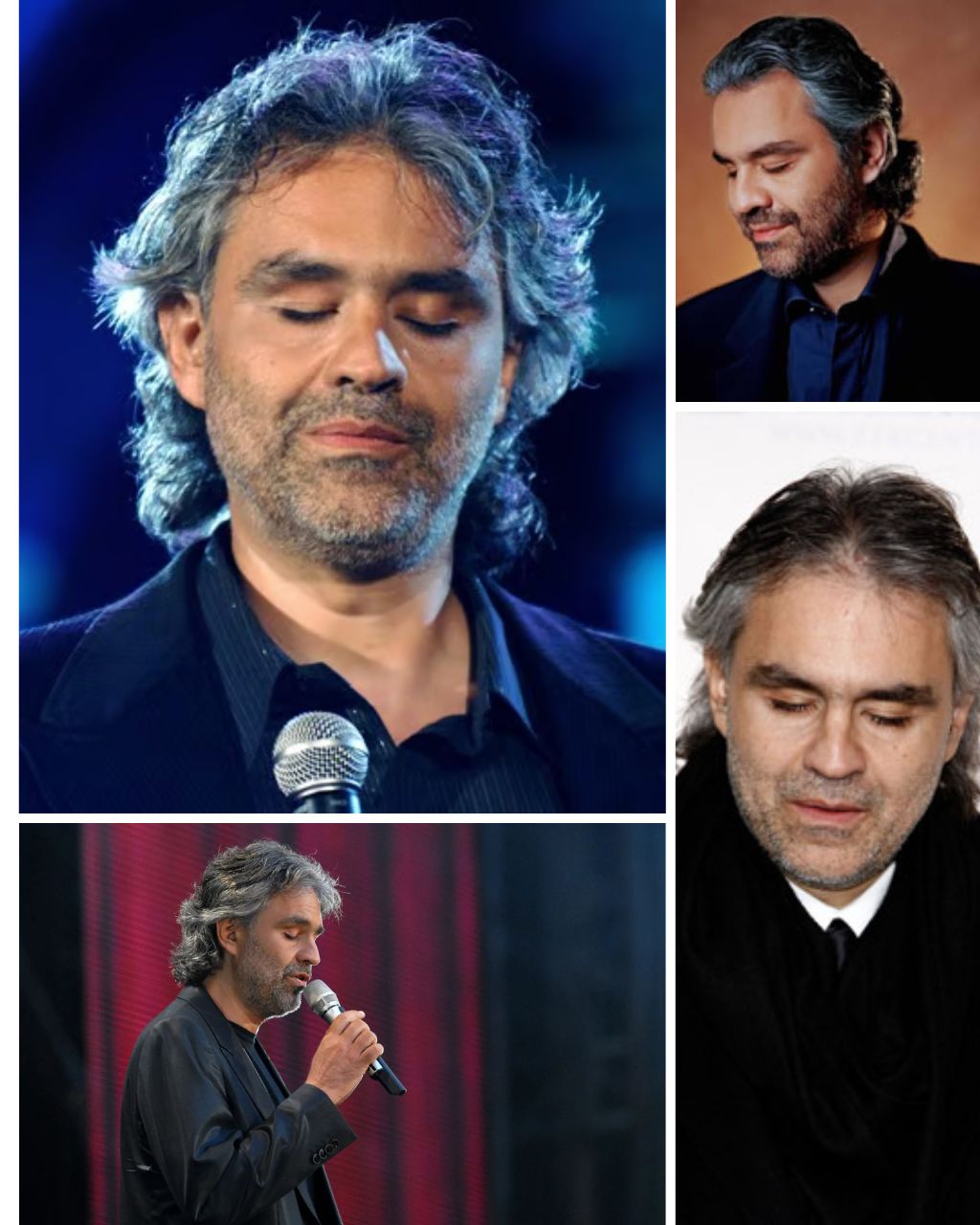It was February 1995, and the air inside Teatro Ariston buzzed with anticipation. The Sanremo Music Festival—Italy’s most prestigious stage—was known for launching pop stars and stirring national pride. But no one expected that one man, a relatively unknown singer with dark sunglasses and a quiet demeanor, would soon redefine the world’s relationship with classical music.
Andrea Bocelli stepped into the spotlight with modest confidence. Blind since the age of twelve, he moved not by sight, but by instinct—and music was his true guide. The orchestra prepared for the next performance, the lights warmed the stage, and silence settled like a hush of reverence.
Then came the first notes of “Con Te Partirò.”
A hush fell over the crowd.
Bocelli’s voice, rich as velvet and powerful as the sea, rose with a depth that seemed to pull at something ancient in every soul listening. His tenor notes flowed like prayer—aching, soaring, intimate. His delivery was flawless, but it was the emotion—so raw, so human—that made the performance unforgettable.
Some in the audience had tears in their eyes before the first chorus had ended. The judges gave their scores, placing him fourth—a technical result that would soon be rendered irrelevant by history.
In the days that followed, something extraordinary happened. Radio stations began playing the song on repeat. Record stores sold out of the single within hours. International markets called. But more than that—people were talking. Not just about a singer, but about a feeling they hadn’t had in years. Bocelli had bridged the gap between opera and mainstream, between centuries-old tradition and contemporary taste.
He didn’t just win over a crowd—he opened a door.
Soon, “Con Te Partirò” would echo in stadiums, weddings, movie scores, and concert halls. It would become a symbol of beauty without borders, of music that speaks every language because it speaks the language of the heart.
That single night in Sanremo wasn’t just a competition. It was a shift. The moment a young tenor with a timeless voice reminded the world that music, at its purest, transcends category—and that a blind man could open millions of eyes to something truly new.
